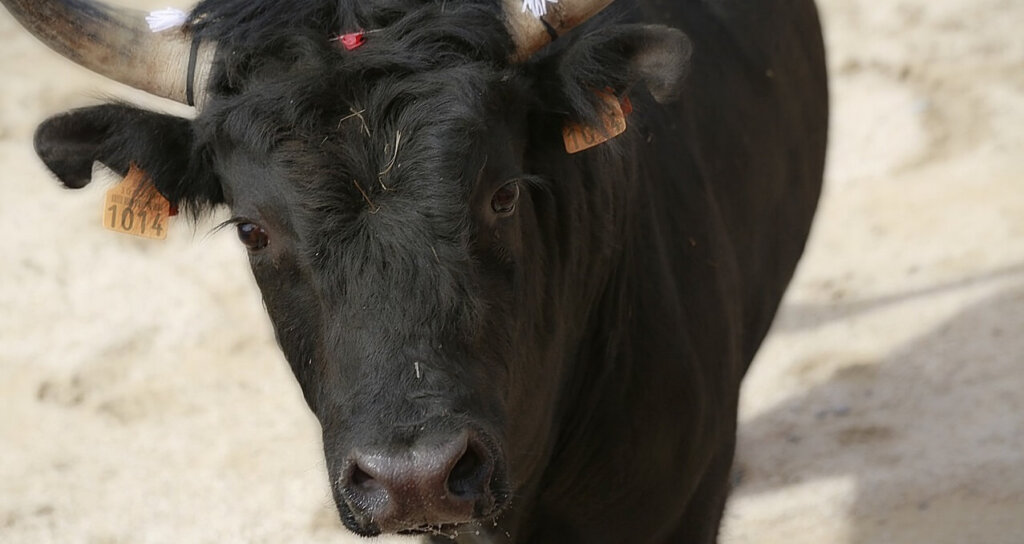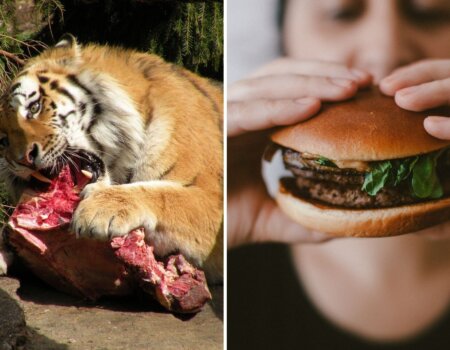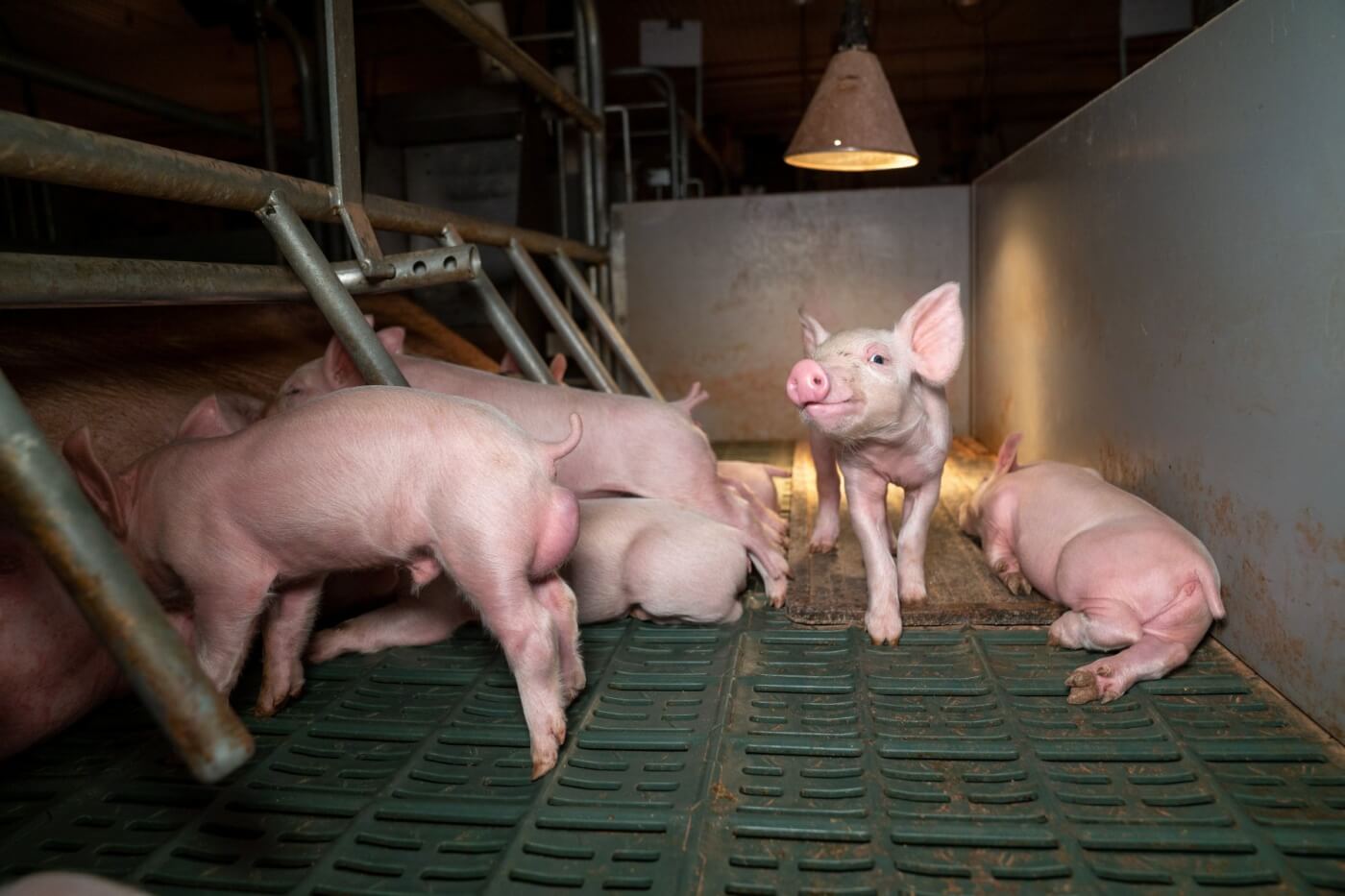
Victoria’s Pig Welfare Inquiry Backs Lab-Grown Meat and CCTV in Slaughterhouses
Earlier this year, PETA and our supporters submitted to the Victorian parliamentary inquiry into pig welfare, which aimed to gauge the public’s opinion on proposed welfare measures within the Australian pig meat industry. The committee received over 3,000 submissions and has now delivered its recommendations, including that the government should formally recognise the potential significant contributions the development of the lab-grown meat industry could make to the Victorian economy. The report also suggests that that the government impose mandatory CCTV in all slaughter and farming facilities for independent audits.
These recommendations are among a few glimmers of hope found in the report.
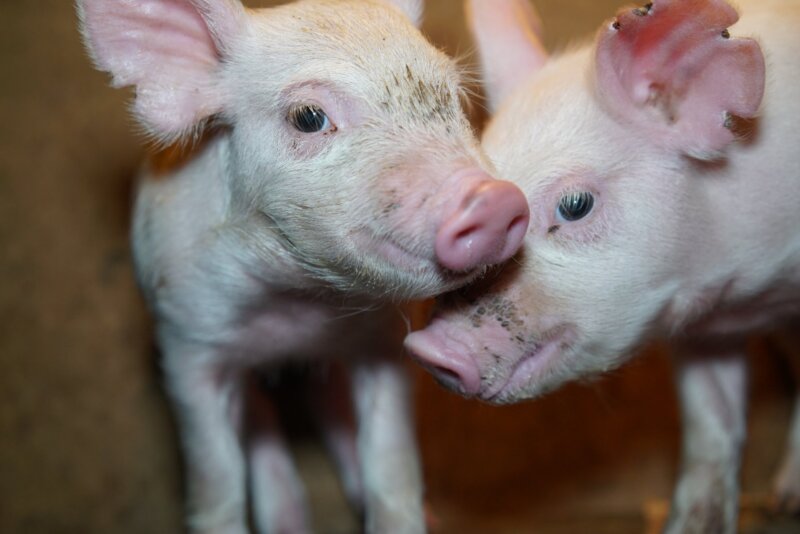
As PETA’s mission statement says – and as the world is increasingly realising – animals are not ours to use for food. Just like humans and other animals, pigs can experience pain and suffering. They have thoughts, feelings, and individual personalities, and they want to play and be with their family and friends. They don’t voluntarily go to their deaths: they struggle, scream, and try to escape. What’s done to them in the Australian pork industry in Victoria and elsewhere is a disgrace. The entire system should be shut down without delay – it already would’ve been if dogs were the ones being caged, bludgeoned, and gassed.
PETA works to create a world where animals are no longer exploited for any reason, and the ideal outcome from the inquiry would have been the swift abolition of the practice of killing pigs for their flesh and a nationwide transition to plant-based farming. In the meantime, taking steps towards improved animal welfare is the bare minimum that the animal agriculture industry should do. This new report makes suggestions for improving welfare for pigs, including the following:
- The government should consider establishing an independent office of animal protection to ensure compliance with animal protection laws, streamline complaints, monitor animal welfare conditions, and provide expert, evidence-based reform within Victoria.
- The government should work with the pork industry to innovate research into and development opportunities for commercially viable alternatives to stunning pigs with carbon dioxide prior to slaughter. It should report on its findings by May 2026.
- The government should legislate a complete ban on the use of sow stalls and farrowing crates.
- The government should work with the pork industry to find an alternative to the use of blunt-force trauma as a suitable method of piglet euthanasia.
The next steps are for the government to review and legislate the recommendations.
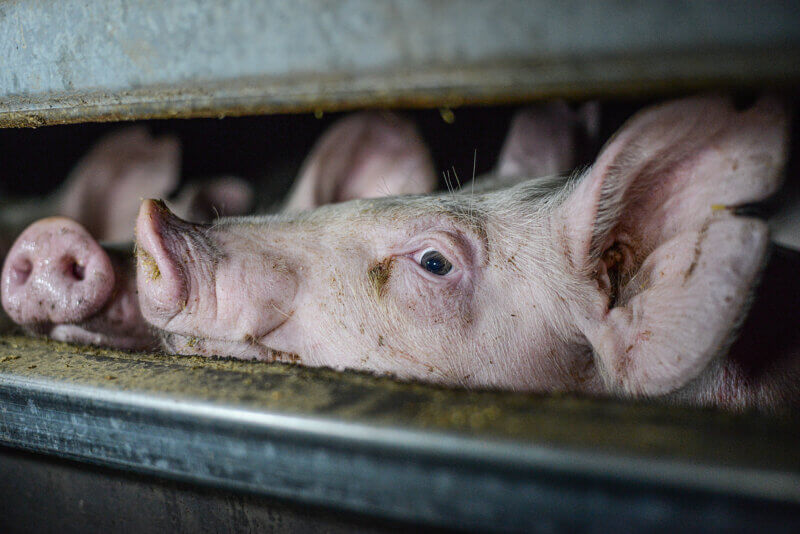
Pigs exhibit complex social, emotional, and cognitive skills. They are communicative and vocal, using more than 20 different sounds in various circumstances, including to display positive and negative emotions. Pigs also demonstrate empathy for others and have distinct personalities. And they value their lives, just as humans value our own.
What pigs endure in the Australian pork industry is an abomination. From their miserable birth in cramped crates, where their mother can’t even reach them to properly form the bonds that are so vital to pigs’ well-being, they suffer from intense confinement, mutilation, and abuse. They endure long, arduous journeys aboard trucks bound for an abattoir, during which they’re denied food and water – even in Australia’s scorching summer. On arrival, they smell the fear and hear the screams of other pigs being slaughtered. They panic and suffocate inside gas chambers before their throats are slit and their bodies are cut apart.
Of course, welfare improvements mean little unless they are enshrined in law, and we must keep fighting for animals to have legal protection, Even then, investigations into farms and slaughterhouses have proved that, wherever animals are used, they are abused, which is why the best way to help pigs is by going vegan. Rejecting the daily cruelty that occurs on farms and in slaughterhouses is as easy as making some simple and delicious changes when you prepare dinner. Order PETA’s free vegan starter kit for tips, recipes, and advice.
Let’s make 2025 a historic year for animals
